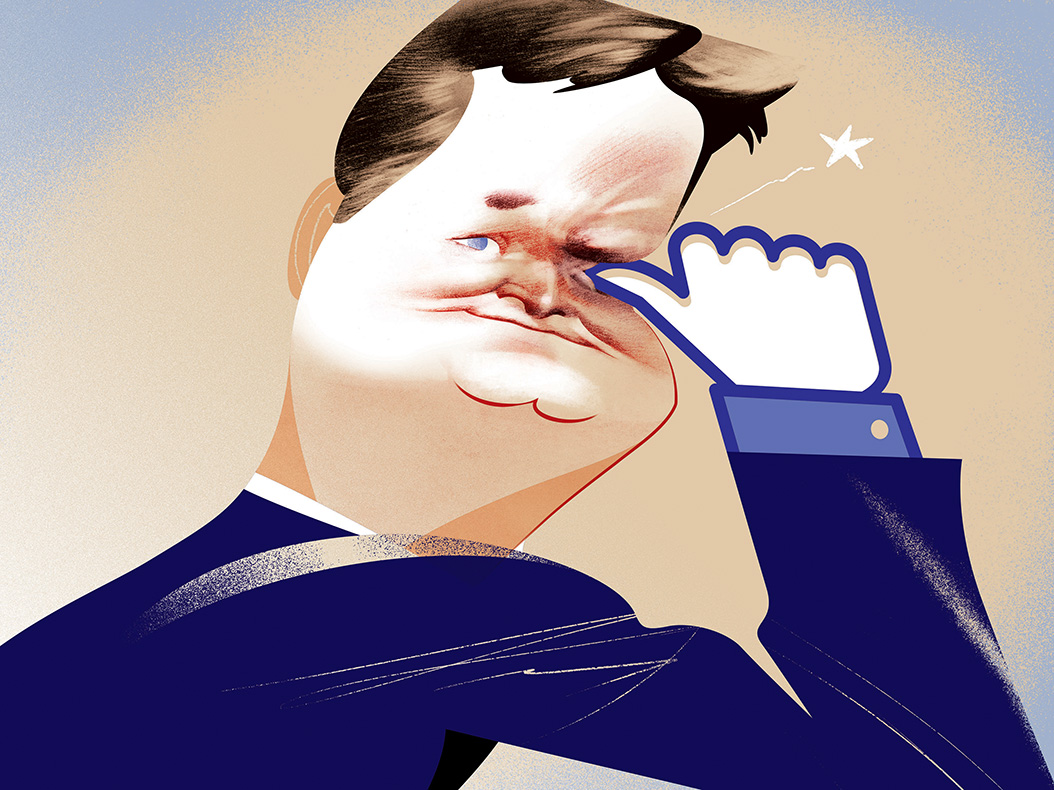By Will Dunn
Copyright newstatesman

One morning during Nick Clegg’s seven-year stint as Facebook’s most senior lobbyist, he and his fellow executives were summoned to Mark Zuckerberg’s personal gym and asked to fight each other. Zuckerberg, a fan of the UFC cage-fighting franchise, wanted them to train in combat. Perhaps it was to sharpen their skills in boardroom battles; perhaps it was just a bit of old-fashioned centibillionaire sociopathy. Clegg was paired with a fellow lobbyist, who subdued him with a “Domination Mount” (maybe don’t Google it). Some people would count this as defeat, but submission is Clegg’s special move. He has made his name as a cushion for the strong.
It was Clegg who led the Lib Dems to their greatest share of the popular vote in 2010, and then their greatest humiliation in 2015. The price of five years in coalition government was to be reduced from 57 seats to just eight. Having proved himself as a truly world-class blame-sponge as David Cameron’s deputy prime minister, Clegg became chief lobbyist to Zuckerberg.
Not any more, though. He’s back in the UK, and on a Sunday night in Bournemouth he is appearing at his first Liberal Democrat party conference for a decade. He arrives on stage kitted out by La Boutique du Papa Centriste: brown leather shoes, dark chinos, dark grey shirt, navy jacket, the quietly expensive uniform of the man taking a break from power. There is, perhaps, a secure area of the Charles Tyrwhitt website into which the Jeremy Hunts and Nick Cleggs of this world may log.
He is upset that Keir Starmer didn’t stand up to Donald Trump during the recent state visit. He finds it cringeworthy, this “debasement”, this “endless knee-bending and ring-kissing” towards the Americans. The government’s celebration of investments by US tech companies was “overstating our role in things”, a phrase that caused the assembled Lib Dems to wince in unison. The “great kinship between the UK and the US… I think that’s gone”, he said. “The country needs to hear the Prime Minister speak up more volubly for values that are being quite overtly attacked by this US administration.”
Early on in Clegg’s career at the tech company Meta, where he was paid millions of pounds per year, he defended the company against allegations that its algorithms had driven a 14-year-old British girl to suicide by pushing thousands of posts promoting self-harm on to her Instagram feed. Clegg said it was right to keep showing children such images, “if that helps people make a cry for help and then get the support they need”. In private, however, he had fretted to fellow executives that the hugely profitable business of automated feeds that surfaced sources of suicidal ideation was “so difficult to explain publicly” and that the company looked “convoluted and evasive”. It’s tough to speak up volubly for values!
It was, he told the crowd, pretty much his moral duty to become a lobbyist for the rage-fuelled machine that is devouring society. He made, he told us, “very significant changes to improve it”, but he warned: “When you throw your lot in with big US companies”, you have to “be quite careful what you wish for”. Did he wish for the £24.1m in share options he cashed in during his time at Meta? Or did it just fall into his wallet?
From the outside it might look as if Clegg, who made the decision to suspend Donald Trump from Facebook after Trump’s attempted insurrection of 6 January 2021, was dropped by Meta (which owns Facebook, Instagram and WhatsApp) at the beginning of this year so that Zuckerberg could repair his relationship with America’s would-be dictator. But Clegg told us that he “chose to leave” Meta because he feared he was becoming “an insider”. His role, as he describes it, was not to be the company’s chief lobbyist but to be “the grit in the oyster” – to tell Zuckerberg the things other people didn’t dare say. But after the 2024 presidential election, he said, “Silicon Valley decided they were going to really join themselves at the hip with this new Trump administration”, and that in this new atmosphere of compliance, “I wouldn’t have been very helpful.” In a moment of clarity he added: “I don’t think the people around Trump particularly like me.”
He deplores what Trump’s administration is doing. “The American administration actively interfered in the Polish presidential elections,” he declared. JD Vance’s meeting with the AfD on the eve of the German elections, his lectures to Europeans on free speech, were “astonishing”; Elon Musk’s participation in a far-right rally was “an outrageous intrusion into our sovereignty” (for this he earned a round of applause). “I kind of want our government to call that out,” he huffed.
And yet he can’t help but be impressed by them: “A lot of the energy, the disruptive energy, is coming from the right,” he opined. He wanted progressives to find some of that “momentum and energy and dynamism”, that “restless wish to shape and reshape the future”. I wonder if he was like this at school. I picture him stepping into a playground fight and earnestly addressing his fellow pupil: yes, Aggro McSmashface is beating you up again, but you’ve got to admire his disruptive energy, yeah? What can we learn from him?
A similar feeling suffuses his latest book, How to Save the Internet. In this – in between long stretches of generic, chatbot-like observations about technology changing the world, and irritating pseudoconcepts such as “flexicurity” – he worries that the internet, which is “free”, “open” and “borderless” under the stewardship of Silicon Valley, is being splintered by governments who insist, in their old-fashioned way, that their laws should still apply. Clegg told us he fears a “Balkanisation” of the internet, and proposes a coalition of countries to form a nice Western internet. It would be led by the US, which already runs the internet and whose tech companies, including Meta, have used their market power to outcompete or buy British competitors wholesale. A coalition with a stronger, more aggressive partner who will turn on you: has that been tried before, Nick?
Presumably there would be a role in this coalition for Nick Clegg. In How to Save the Internet he writes admiringly of his “atypical confluence of experience in both politics and technology”, which sounds a lot like a cover letter for his next job. At the beginning of the event he had placed his phone on the little table between him and his interlocutor (Hannah White, head of the Institute for Government). Occasionally he glanced down at the device: would the call come in? Was an oligarch’s helicopter waiting on the roof of the Bournemouth International Centre?
In the hall he had been blunt – “I’m not going back into politics” – but in the corridors, Lib Dems still remembered the heady spring of 2010, the arrival of their man in Downing Street, the hazy, crazy Summer of Clegg. “We’ve just got to get him ennobled,” I heard one say, “and then he can be foreign secretary.”
Early the next morning I saw Ed Davey in Bournemouth’s pleasure gardens. Davey has broken Clegg’s record for the Lib Dems in their modern incarnation, winning 72 seats at the last election. Davey might not have worked in Silicon Valley but, like Nigel Farage, he seems to have an intuitive understanding of what travels on the internet. He is bluntly confrontational; he said Elon Musk is “a criminal” who should be arrested in the UK. He is prepared to make a prat of himself, to go down any number of waterslides, to fall off any number of paddleboards, in pursuit of the attention that the machine would otherwise hand to Reform. Clegg, like Blair, is a serious technocratic centrist, someone who will work with anyone. Davey knows that seriousness is overrated: what matters is sincerity. In the September morning sun he beamed as a florist tried to teach him to arrange a bunch of flowers. Laughing, he held them aloft, like a trophy.
[Further reading: Ed Davey squares up to Nigel Farage]



